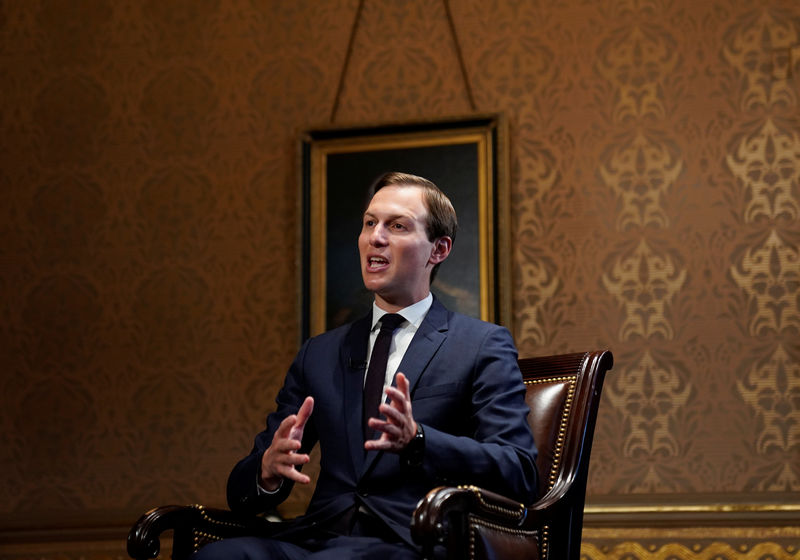By David Morgan
WASHINGTON (Reuters) - The Democratic-led U.S. House Judiciary Committee will consider authorizing subpoenas this week to compel testimony from a dozen current and former Trump administration officials, including Jared Kushner, as part of an intensifying investigation into President Donald Trump's conduct.
The panel will meet on Thursday to consider resolutions to authorize subpoenas for individuals including former Attorney General Jeff Sessions and former White House Chief of Staff John Kelly, as it widens a probe that began in March of alleged obstruction of justice, corruption and abuse of power by Trump.
The House of Representatives committee will also consider subpoenas for documents and testimony relating to a separate probe of Trump immigration policies, including family separation.
Asked about the subpoenas following a meeting with Qatar's emir, Trump told reporters: "I don't know anything about it."
Up to now, the White House has sought to stymie committee investigators by directing former Trump aides, including former White House Counsel Don McGahn, not to cooperate. But Democrats, who control the House, are trying to break the administration's stonewalling effort by seeking to enforce congressional subpoenas in federal court.
The Judiciary Committee, which could launch an impeachment inquiry against Trump if it uncovered evidence of wrongdoing, is expected soon to file a lawsuit against McGahn over his refusal to testify before the panel in May.
Democrats believe a favorable ruling in such a case would significantly damage the White House's ability to insulate Trump from congressional investigations.
House Judiciary Chairman Jerrold Nadler, who would decide when to issue any authorized subpoenas, said in a statement that he was open to a "reasonable accommodation" allowing witnesses to cooperate voluntarily. "We will get answers one way or the other," he said.
Aside from Sessions, Kelly and Kushner, who is Trump's son-in-law as well as a senior White House aide, the committee will consider authorizing subpoenas for former national security adviser Michael Flynn, former Deputy Attorney General Rod Rosenstein, former White House Staff Secretary Rob Porter and former Trump Campaign Manager Corey Lewandowski, among others.
The committee is digging deeper into actions and events described in former U.S. Special Counsel Robert Mueller's 448-page report on a two-year federal investigation into Russian meddling in the 2016 presidential election and Trump.
Mueller found insufficient evidence to show that the Trump campaign conspired with Russia to affect the election's outcome, despite numerous contacts between campaign officials and Moscow. He also did not find that the president obstructed justice, but said specifically that the evidence did not exonerate Trump.
Representative Doug Collins, the Republican on the House Judiciary Committee, dismissed the move on subpoenas as a partisan waste of time.
"Today's latest effort to relitigate the special counsel's investigation remains unimpressive and unproductive," he said in a statement.

"Even if Chairman Nadler still believes subpoenas are conversation starters, it's hard to imagine this handful of subpoenas will do anything but reinforce the principal conclusions we've been able to read about for months."